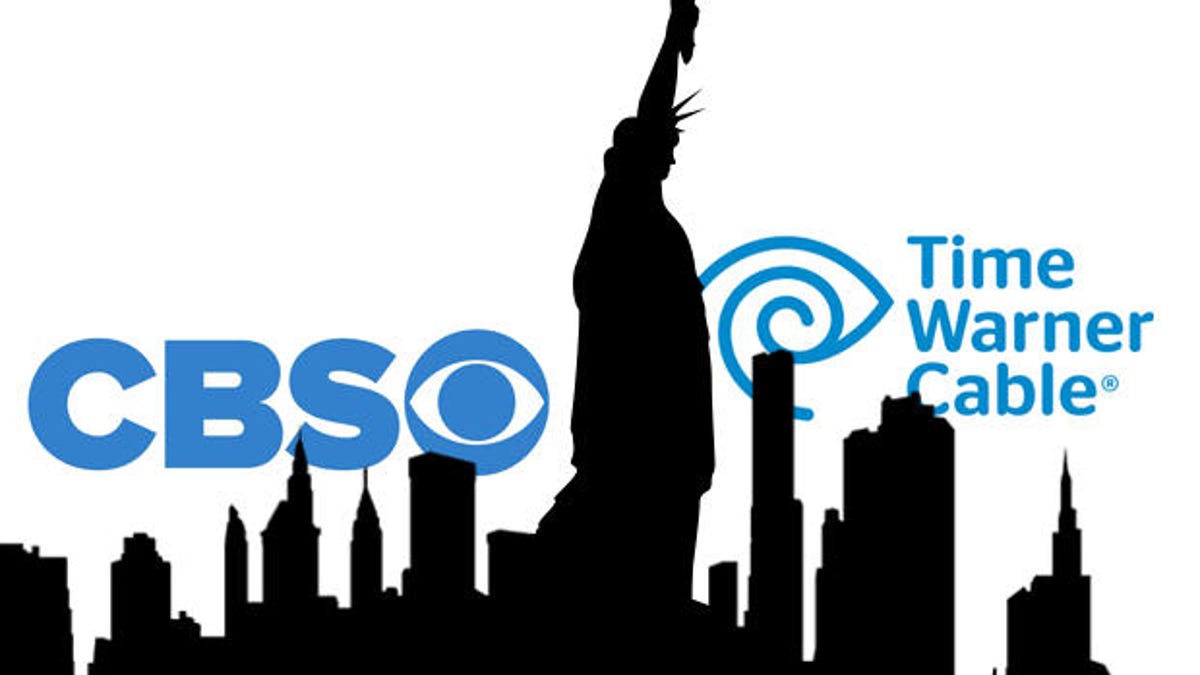CBS, Time Warner Cable spar over online rights
As a blackout of CBS channels for Time Warner Cable subscribers nears a week, the two sides continue to blame each other's stance on the digital-content terms for a lack of progress in ongoing negotiations.

A Time Warner Cable representative and CBS executive separately said Thursday that the companies are in negotiations to end a nearly weeklong blackout of the broadcaster's flagship network to some subscribers, but their public discourse about the talks continued to be fraught with accusations about the other sides' stance on digital rights and online availability.
At a New York City Council committee meeting Thursday, CBS Executive Vice President Martin Franks said that while its negotiation with Time Warner is continuing, it has gone "badly off course" compared to talks with other pay-TV providers in recent years.
He said Time Warner was attempting to "hamstring" CBS's business with the likes of Netflix, Amazon, Hulu Plus, and other new entrants like Intel, which is developing a TV service to launch this year, by suggesting their new deal have the same terms and conditions as the prior one from 2008.
Time Warner said in a statement that it wasn't trying to hinder CBS. "We categorically deny that we are trying to keep CBS from doing business with any new entrant. Both our expired and proposed agreements with CBS place no restriction on their ability to sell all of their product to Netflix, Amazon, Intel or any other entity," the company said.
At the same committee meeting Thursday, Time Warner Cable's Rory Whelan, a regional vice president of government relations, called on policy makers and law enforcement to "hold CBS to account for its outrageous blocking of online content." CBS has been preventing Time Warner Cable broadband customers from accessing free online episodes on its Web site.
It also asked New York City officials to seek reform of the retransmission consent system.
The companies had been hashing out a new carriage agreement under extensions to their old pact, which expired June 30, until they parted ways without a deal Friday. The central issue is the level of retransmission fees Time Warner Cable must pay CBS, the parent company of CNET, to carry its flagship broadcast network, but online rights have emerged as one of the points of greatest contention. Their impasse Friday resulted in CBS being dropped from Time Warner's lineup in New York, Dallas, and Los Angeles and cable networks like Showtime going dark for all its subscribers.

